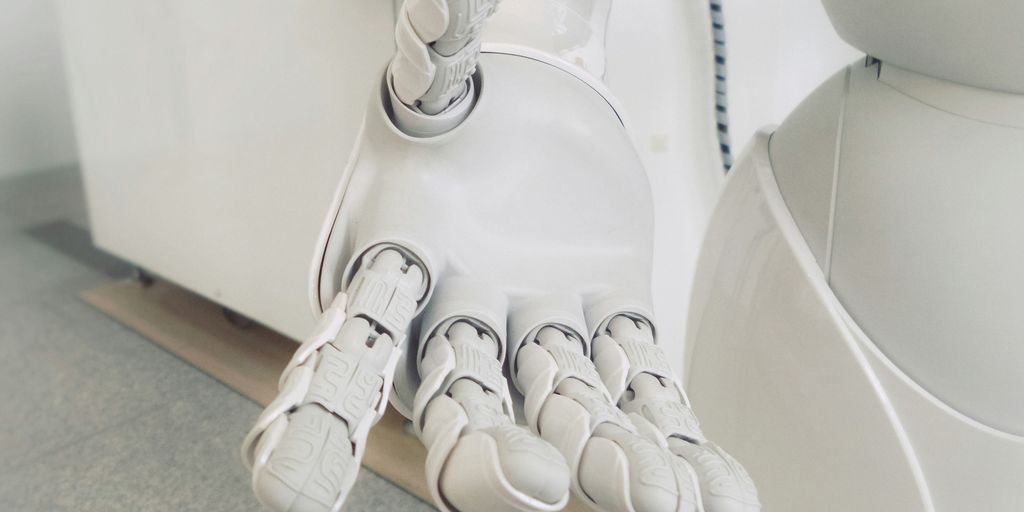Big computer programs, called LLMs, are changing healthcare. They are making things better for patients and doctors. These programs can help with many tasks, from finding sicknesses early to making hospital work smoother. It’s a big step forward for medicine, and it means a lot of good things for how we get care. This article talks about how LLM healthcare is making a difference.
Key Takeaways
- LLMs are helping doctors find health problems faster and more accurately.
- LLM healthcare can create personal care plans and give patients help around the clock.
- LLMs are making hospital tasks easier, like handling paperwork and organizing digital records.
- There are still some hurdles for LLM healthcare, such as keeping patient information private and making sure the technology works with current systems.
- The future of LLM healthcare looks bright, with new ideas like AI for finding new medicines and smart devices working together.
Revolutionizing Diagnostics with LLM Healthcare
LLMs are changing how we approach diagnostics. It’s not just about making things faster; it’s about making them better. Think about it: machines that can read and understand medical data like a doctor, but way faster. That’s the promise of LLM healthcare.
Enhancing Early Disease Prediction
Imagine a world where diseases are caught way before they become serious problems. That’s what LLMs could help achieve. By analyzing tons of data, they can spot patterns that might be missed by humans. This means earlier treatment and better outcomes for patients. It’s like having a super-powered detective on the case, constantly looking for clues.
Improving Diagnostic Accuracy
LLMs aren’t just about speed; they’re about getting it right. They can look at symptoms, medical history, and research to come up with a diagnosis. This can be especially helpful in tricky cases where the symptoms are confusing. LLMs are capable of identifying pathological areas, enhancing diagnostic accuracy, and performing risk prediction. It’s like having a second opinion that’s always available.
Integrating with Medical Imaging
Medical images, like X-rays and MRIs, contain a ton of information. But it can take a long time for doctors to analyze them. LLMs can help speed up this process by automatically identifying potential problems. This means faster diagnoses and treatment plans. It’s like having a super-powered assistant that never gets tired of looking at images.
Personalizing Patient Care Through LLM Healthcare
LLMs are really changing how we think about patient care. It’s not just about treating symptoms anymore; it’s about understanding the whole person. These tools are making huge changes in how care is given. They’re not just extras; they’re changing the game in medical practice.
Tailoring Treatment Plans
Each person’s health is different, and treatment should reflect that. LLMs can look at a patient’s genes, lifestyle, and past health records to suggest treatments that are just right for them. This can lead to better results and fewer side effects. It’s like having a treatment plan made just for you. LLMs use algorithms to predict how treatments might work, helping doctors make better choices for each patient. This kind of customization used to be a dream, but it’s becoming real thanks to LLMs.
Providing Virtual Health Assistance
Imagine having a health assistant available 24/7. LLMs can provide that through virtual platforms. They can answer questions, offer support, and even monitor your health remotely. This is especially helpful for people who live far from medical centers or have trouble getting around. LLMs can also help doctors keep track of patients between visits, making sure everyone stays on track with their care. They can understand what patients need and give advice that feels personal and caring. By understanding the thoughts and feelings of both doctors and patients, LLMs can improve healthcare.
Optimizing Patient Monitoring
LLMs can analyze data from wearable devices and other sources to keep a close eye on patients’ health. This allows for early detection of problems and quick intervention. For example, if an LLM detects a change in heart rate or blood pressure, it can alert the patient and their doctor right away. This kind of proactive monitoring can prevent serious health issues and improve overall well-being. LLMs can also help manage chronic conditions by providing personalized feedback and support. They can even automate the transcription of doctor-patient conversations, instantly update medical records, and handle patient inquiries and scheduling without human intervention.
Streamlining Healthcare Operations with LLM Healthcare
LLMs are making a real difference in how healthcare runs behind the scenes. It’s not just about fancy AI doctors; it’s about making the whole system work better. Think less paperwork, faster processes, and happier staff.
Automating Administrative Tasks
Administrative tasks bog down healthcare professionals. LLMs can automate a lot of this, freeing up time for actual patient care. Imagine not having to spend hours on scheduling, insurance claims, or updating records. LLMs use natural language processing to handle these tasks, reducing errors and speeding things up. For example, automated scheduling can manage appointments with minimal human input. Claims processing can speed up insurance and billing, reducing delays. Record management can automatically update and organize patient records, ensuring accuracy. It’s like having a super-efficient assistant that never gets tired.
Optimizing Digital Health Workflows
Digital health workflows can be a mess. Different systems, different formats, and lots of manual data entry. LLMs can help streamline these workflows by integrating various systems and automating data transfer. This means less time wasted on technical issues and more time focused on patient needs. The potential of LLMs to optimize digital health care workflows is undeniable.
Here’s a quick look at how LLMs can improve workflows:
- Data Integration: LLMs can connect different systems, making it easier to share information.
- Process Automation: LLMs can automate repetitive tasks, like data entry and report generation.
- Decision Support: LLMs can analyze data and provide insights to help healthcare professionals make better decisions.
Enhancing Medical Documentation
Medical documentation is a necessary evil. It’s time-consuming, prone to errors, and often difficult to navigate. LLMs can help by automating transcription, summarizing notes, and ensuring accuracy. This not only saves time but also improves the quality of documentation. Think about it: doctors can focus on listening to patients instead of frantically typing notes. LLMs can even analyze patient health records, treatment plans, and laboratory results. It’s a win-win for everyone involved.
Addressing Challenges in LLM Healthcare Implementation
It’s not all sunshine and roses when it comes to using LLMs in healthcare. There are some real hurdles we need to jump over before these tools can be used safely and effectively. Let’s be real, getting this right is super important.
Ensuring Data Privacy and Security
Okay, so, patient data is super sensitive, and keeping it safe is a big deal. We’re talking about HIPAA and other regulations that have teeth. LLMs need a ton of data to work, and that data has to be protected. Think about it: a data breach could expose tons of personal health information. Not good.
Here’s a quick rundown of what we need to think about:
- Encryption: Gotta scramble that data, both when it’s moving and when it’s sitting still.
- Access Controls: Only the right people should be able to see the data. No exceptions.
- Monitoring: Keep an eye on things to catch any weird activity early. clinical data is very important.
Overcoming Technological Compatibility Issues
Getting new tech to play nice with old systems is always a pain, right? Healthcare is no different. LLMs need to fit into the existing IT infrastructure, and that can be tricky. You’ve got different systems that don’t always talk to each other, and making them work together without creating security holes is a challenge. Plus, not everyone has the latest and greatest hardware, so you need solutions that work for everyone.
Navigating Ethical Considerations
It’s not just about the tech; it’s about doing the right thing. LLMs can make decisions, but are those decisions fair? Are they biased? We need to think about things like patient autonomy and making sure AI isn’t making discriminatory recommendations. It’s a minefield, honestly. We need to make sure patients are giving informed consent when AI is involved in their treatment. It’s a tough balance, but we have to get it right.
The Future Landscape of LLM Healthcare

It’s wild to think about where LLM healthcare is headed. It feels like we’re just scratching the surface of what’s possible. I mean, imagine a world where AI is helping doctors make diagnoses faster and more accurately, or where patients have access to personalized care plans tailored to their specific needs. It sounds like science fiction, but it’s becoming more and more of a reality every day. The integration of LLMs promises a healthcare system that is more efficient, accessible, and patient-centered.
Advancements in AI-Driven Drug Discovery
Drug discovery is a notoriously long and expensive process. But with AI, things could speed up dramatically. LLMs can analyze massive datasets of chemical compounds and biological information to identify potential drug candidates. Think about it: instead of years of trial and error, AI could pinpoint the most promising leads, saving time and resources. It’s not just about speed, though. AI can also help design drugs that are more effective and have fewer side effects. This could revolutionize how we treat diseases, leading to new therapies for conditions that currently have limited options. The medical and personal care fastener market could also benefit from these advancements.
Expanding Integration with IoT Devices
The Internet of Things (IoT) is already transforming many aspects of our lives, and healthcare is no exception. Imagine wearable sensors that constantly monitor your vital signs, feeding data directly into an LLM. The AI could then analyze this data in real-time, detecting anomalies and alerting you or your doctor to potential problems before they become serious. This kind of proactive monitoring could be a game-changer for managing chronic conditions like diabetes or heart disease. Plus, it could empower patients to take a more active role in their own health. It’s all about using data to make better decisions and improve outcomes.
Developing Emotional AI for Patient Support
Healthcare isn’t just about treating physical ailments; it’s also about providing emotional support. LLMs are starting to be developed with the ability to understand and respond to human emotions. Imagine a virtual assistant that can not only answer your medical questions but also offer empathy and encouragement when you’re feeling down. This kind of emotional AI could be especially valuable for patients dealing with serious illnesses or mental health challenges. It’s not meant to replace human interaction, but rather to supplement it, providing an extra layer of support when people need it most. This could lead to better patient satisfaction and improved mental well-being. Optimizing digital health care workflows is also a key area for improvement.
Fostering Collaboration in LLM Healthcare Development
It’s pretty clear that LLMs have a ton of potential in healthcare, but getting there isn’t a solo mission. It’s going to take a real team effort to make sure these tools are actually helpful and safe for everyone. We need doctors, researchers, tech people, and even patients all working together. This collaborative spirit is key to unlocking the full potential of LLMs in medicine.
Promoting Interdisciplinary Research
Think about it: doctors know what patients need, researchers understand the tech, and ethicists can help us navigate the tricky moral questions. When these different brains come together, we can create LLMs that are not only smart but also responsible and useful in the real world. It’s about making sure the tech fits the needs, not the other way around. For example, Medicine Community & Research can help to promote interdisciplinary research.
Encouraging Clinician-AI Partnerships
LLMs aren’t meant to replace doctors; they’re supposed to help them. We need to find ways for doctors and AI to work together smoothly. This means training doctors to use these new tools and making sure the AI is designed to support, not overshadow, their expertise. It’s like having a super-smart assistant who can handle the routine stuff so the doctor can focus on the really important decisions.
Establishing Robust Regulatory Frameworks
Let’s be real, AI in healthcare raises some serious questions about privacy, security, and fairness. We need clear rules and guidelines to make sure these tools are used responsibly. This isn’t just about following the law; it’s about building trust with patients and making sure everyone benefits from these advancements. It’s a bit of a headache, but getting the regulatory frameworks right is super important.
Conclusion
So, what’s the big takeaway here? Large Language Models, or LLMs, are really changing things in healthcare. They can help doctors figure out what’s wrong faster, make treatment plans more personal for each patient, and even make the everyday stuff at hospitals run smoother. This means patients get better care, and the whole system works more efficiently. But it’s not all easy. We still have to think about things like keeping patient information private and making sure these AI tools are used in a fair way. Even with those things to work on, it looks like LLMs are going to be a huge part of healthcare’s future. They’re helping create a system that’s more about the patient and works better for everyone.
Frequently Asked Questions
What are LLMs in healthcare?
LLMs, or Large Language Models, are like super-smart computer programs that can understand and create human-like text. Think of them as advanced digital brains that learn from tons of information. In healthcare, they help with many things, from figuring out what’s wrong with a patient to helping doctors organize their work. They’re changing how medical care is given, making it faster and more personal.
How do LLMs make diagnosing illnesses better?
LLMs can help doctors find problems earlier and more accurately. They can look at a patient’s information, like test results and medical history, and suggest possible issues. This helps doctors make better decisions faster, leading to better care for patients.
Can LLMs make patient care more personal?
Yes, LLMs can make healthcare much more personal. They can help create treatment plans that are just right for each patient, based on their specific needs and health information. They can also act like virtual helpers, giving patients advice and checking on them, which makes care feel more tailored.
How do LLMs help with the daily work in healthcare?
LLMs can take care of many everyday tasks that doctors and nurses usually do, like writing notes or scheduling appointments. This frees up medical staff to spend more time with patients. They also help organize digital health records and make sure everything runs smoothly in hospitals and clinics.
What are the main problems with using LLMs in healthcare?
Using LLMs in healthcare comes with some challenges. We need to make sure patient information stays private and safe from hackers. Also, these new computer systems need to work well with older hospital systems. And we have to think carefully about what’s right and wrong when using AI in sensitive medical situations.
What does the future hold for LLMs in healthcare?
In the future, LLMs will likely help discover new medicines even faster. They’ll also connect with smart devices that monitor our health at home, giving doctors real-time updates. We might even see AI that can understand and respond to how patients are feeling, offering more comforting support.














